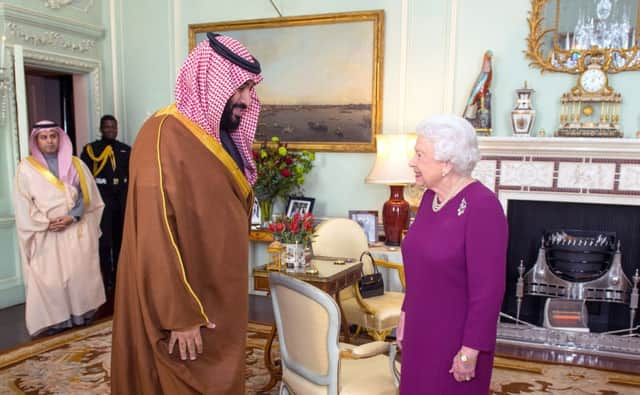The clock is ticking on reform plans of Saudi Arabia's '˜young Thatcher'


In his role as Crown Prince, MbS is being given power to lead change, while the formal titular power rests with King Salman. One suspects this is a purposeful strategy as the house of Saud seeks to keep its grip on power while staving off the threat of economic implosion. As MbS announces reform after reform, the Saudi people may get initiative-weary, and they certainly aren’t happy about rising living costs. Meanwhile, as MbS courts global business and political interests, he needs to please or placate the international appetite for more reforms.
In past economic downturns, Saudis were used to the house of Saud throwing money at the problem. This time is different; this leadership is different. MbS has acknowledged a “Thatcherite” revolution is needed, right down to selling the family jewels in the form of a share listing of national oil company, Saudi Aramco. MbS is personally sponsoring Vision 2030, a market-driven blueprint aiming to diversify the Saudi economy away from oil. However, this means promoting entrepreneurialism in a society where wealth was handed to its members on a platter in the form of oil, resulting in a managerial culture where foreigners were relied upon for initiative and results.
Advertisement
Hide AdAdvertisement
Hide AdSaudi is a rentier economy financed by oil rents derived from its global customer base, It faces pressure on many fronts: the fickleness of oil prices, environmental changes, use of energy alternatives and suppliers, a growing youth bulge, educated women who want jobs, a welfare state it cannot afford, and the need to skill its own citizens. There are geopolitical threats, primarily the return of Iran into the global economic community, what the Saudis perceive as a Shia arc of Iran, Syria and Yemen, human rights criticism, and the war on Yemen which MbS personally sponsored.
That’s a lot for a 32-year-old novice to take on board. MbS’s rise to power has been fast. The death of King Abdullah in January 2015 brought King Salman to the throne, and he made MbS minister of defence, and then Deputy Crown Prince, adding economic planning to his portfolio. King Salman had initially made his nephew, Prince Mohammed bin Nayef, an experienced interior minister, the Crown Prince. In a surprise move, Nayef was replaced and with it the line of succession passed to MbS, and hope for the future placed on a younger generation of royals.
The Thatcherite reference is a useful. Scots need no reminding that Thatcherism brought social change that remains controversial. Most people accept Britain needed to change, even if they disagree with the way it was done. However, Britain suffered a social shock in the process. Likewise, solving Saudi’s economic problems will impact society, but in ways that go even deeper. Maintaining the social cohesion of Saudi as a theocratic absolute monarchy, allowing neither opposition checks nor protests, will produce quite different results.
If the economic revolution is to succeed, MbS needs to maintain social and religious cohesion, and he and the Kingdom cannot underestimate the threat of economic implosion. If MbS fails in his mission the experiment may be over and the older generation will take charge again. King Salman could again change the line of succession.
In this scenario, MbS will become the scapegoat and negotiations will take place to maintain the house of Saud and keep conservative forces in check. As custodian of the two holy sites of Islam, Saudi is the beating heart of global Islam, and if the Kingdom implodes the failure could be more terminal than anyone can imagine.
Dr David Cowan received his PhD from the University of St Andrews.His book ‘The Coming Economic Implosion of Saudi Arabia: A Behavioural Approach’ Palgrave Macmillan is being published next month by Palgrave Macmillan.